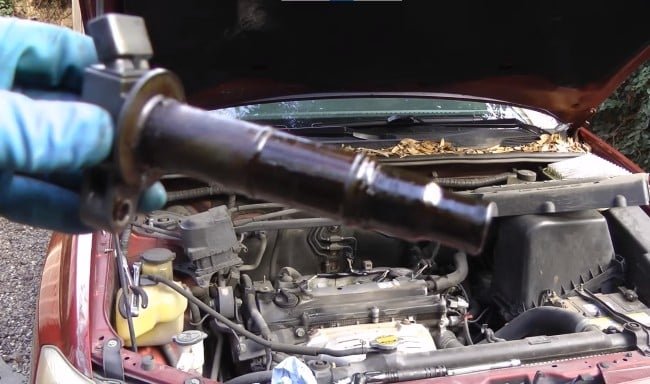Oil leakage in vehicles can be a common and frustrating problem. Not only does it create a mess, but it can also lead to engine damage and decreased performance if left unaddressed. Fortunately, there are several precautions you can take to prevent oil leakage and ensure the longevity of your vehicle.
1. Regularly Check and Change Oil
One of the most important steps in preventing oil leakage is to regularly check and change your vehicle’s oil. Over time, oil can break down and become less effective at lubricating the Engine, leading to leaks. Follow your vehicle manufacturer’s recommendations for oil change intervals and use the recommended type and grade of oil.
2. Inspect Gaskets and Seals
Gaskets and seals play a crucial role in preventing oil leakage. Over time, these components can wear out or become damaged, leading to leaks. Regularly inspect the gaskets and seals in your vehicle, including those around the oil pan, valve cover, and oil filter. If you notice any signs of wear or damage, such as cracks or oil stains, replace them promptly.
3. Tighten Loose Bolts and Fasteners
Loose bolts and fasteners can contribute to oil leakage by allowing oil to seep out. Periodically check and tighten any loose bolts or fasteners in your vehicle’s engine and oil system. Pay particular attention to the oil pan drain plug, oil filter, and valve cover bolts. Use the appropriate tools and torque specifications to ensure proper tightening.
4. Avoid Overfilling the Oil
Overfilling the oil in your vehicle can put excess pressure on the seals and gaskets, leading to leaks. When adding oil, follow the manufacturer’s guidelines and use the dipstick to check the oil level. Avoid adding more oil than necessary, and if you accidentally overfill, drain the excess oil immediately to prevent potential leakage.
5. Keep the Engine Clean
A clean engine is less likely to develop oil leaks. Regularly clean the engine compartment to remove dirt, debris, and oil buildup. Use a degreaser and a soft brush to clean the engine surfaces, taking care not to damage any electrical components. A clean engine not only looks better but also helps you identify any potential oil leaks more easily.
6. Check for Signs of Oil Leakage
Regularly inspect your vehicle for any signs of oil leakage. Look for oil stains or puddles underneath the vehicle, as well as oil spots on the engine or other components. If you notice any signs of leakage, address the issue promptly to prevent further damage. Ignoring oil leaks can lead to more significant problems and costly repairs down the line.
7. Consult a Professional Mechanic
If you are unsure about how to prevent or address oil leakage in your vehicle, it is always a good idea to consult a professional mechanic. They have the knowledge, experience, and tools to diagnose and repair any oil leakage issues. Regular maintenance and inspections by a qualified mechanic can help identify potential problems early on and prevent major oil leaks.
Conclusion
Oil leakage in vehicles can be a frustrating and potentially damaging problem. By following these precautions and maintenance tips, you can minimize the risk of oil leaks and ensure the longevity of your vehicle’s engine. Remember to regularly check and change the oil, inspect gaskets and seals, tighten loose bolts, avoid overfilling the oil, keep the engine clean, check for signs of leakage, and consult a professional mechanic when needed. Taking these steps will help keep your vehicle running smoothly and prevent the hassle and expense of oil leakage. Read more how to prevent and stop oil leaks here.

